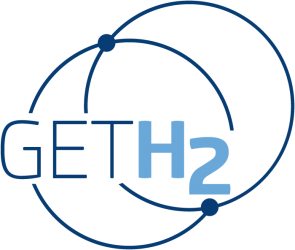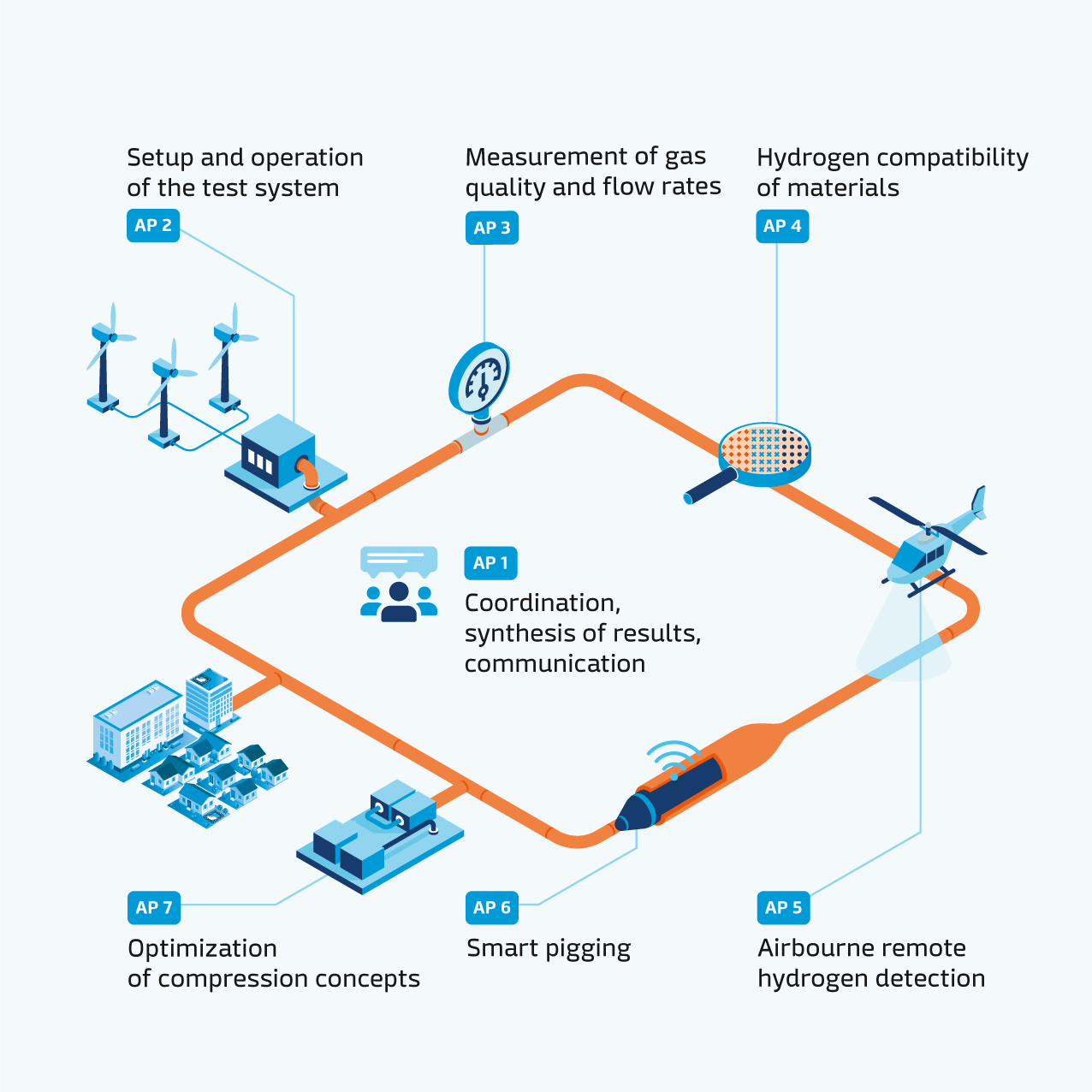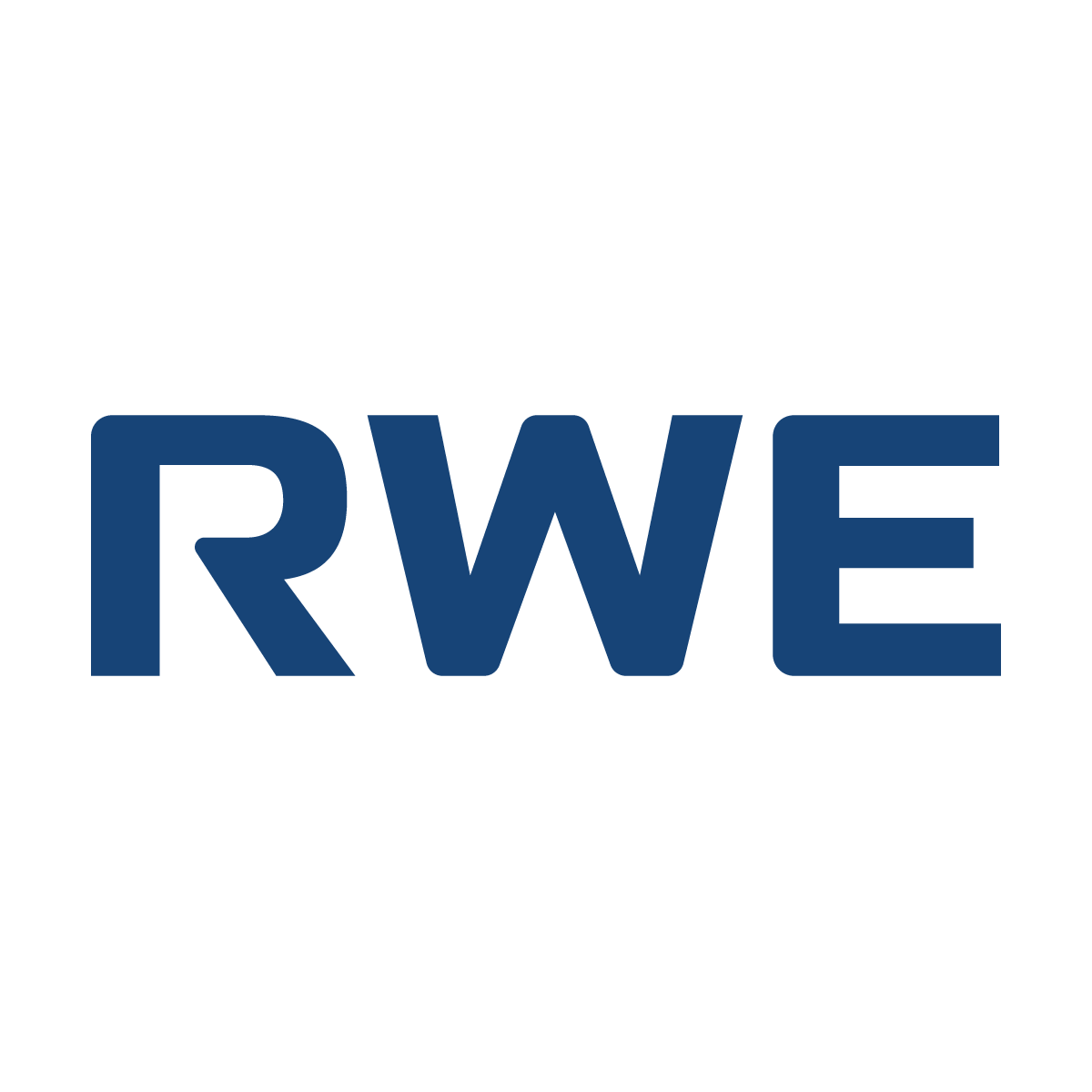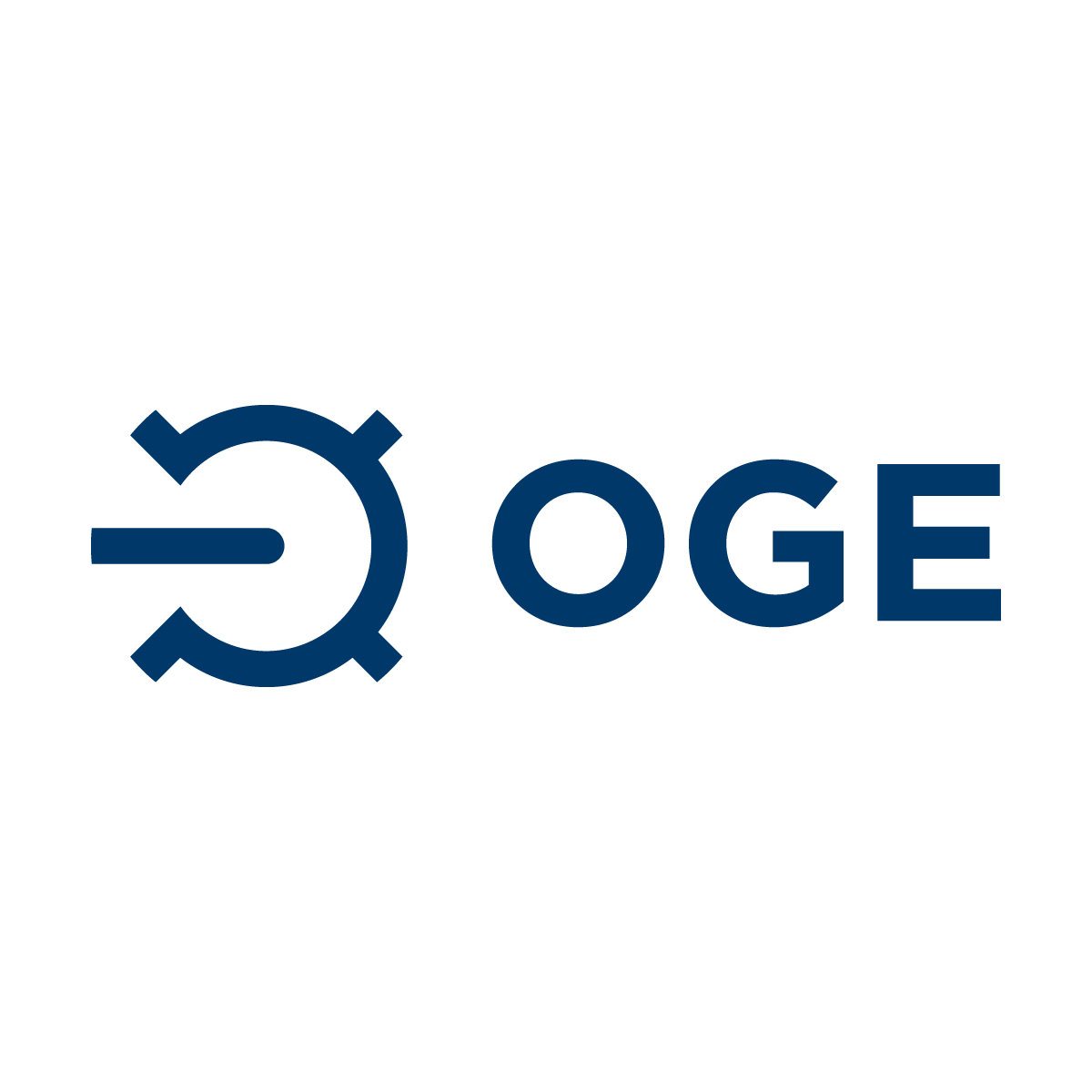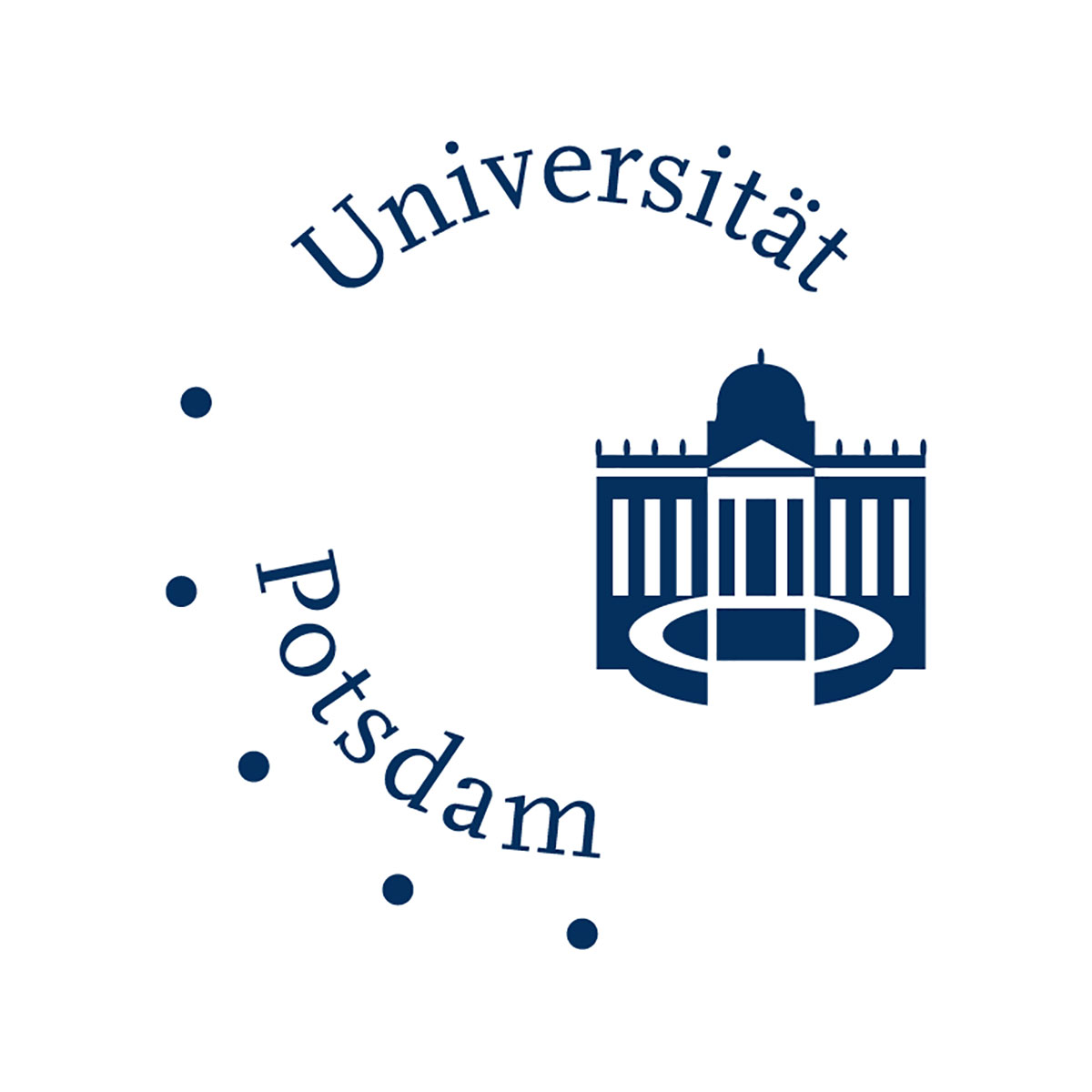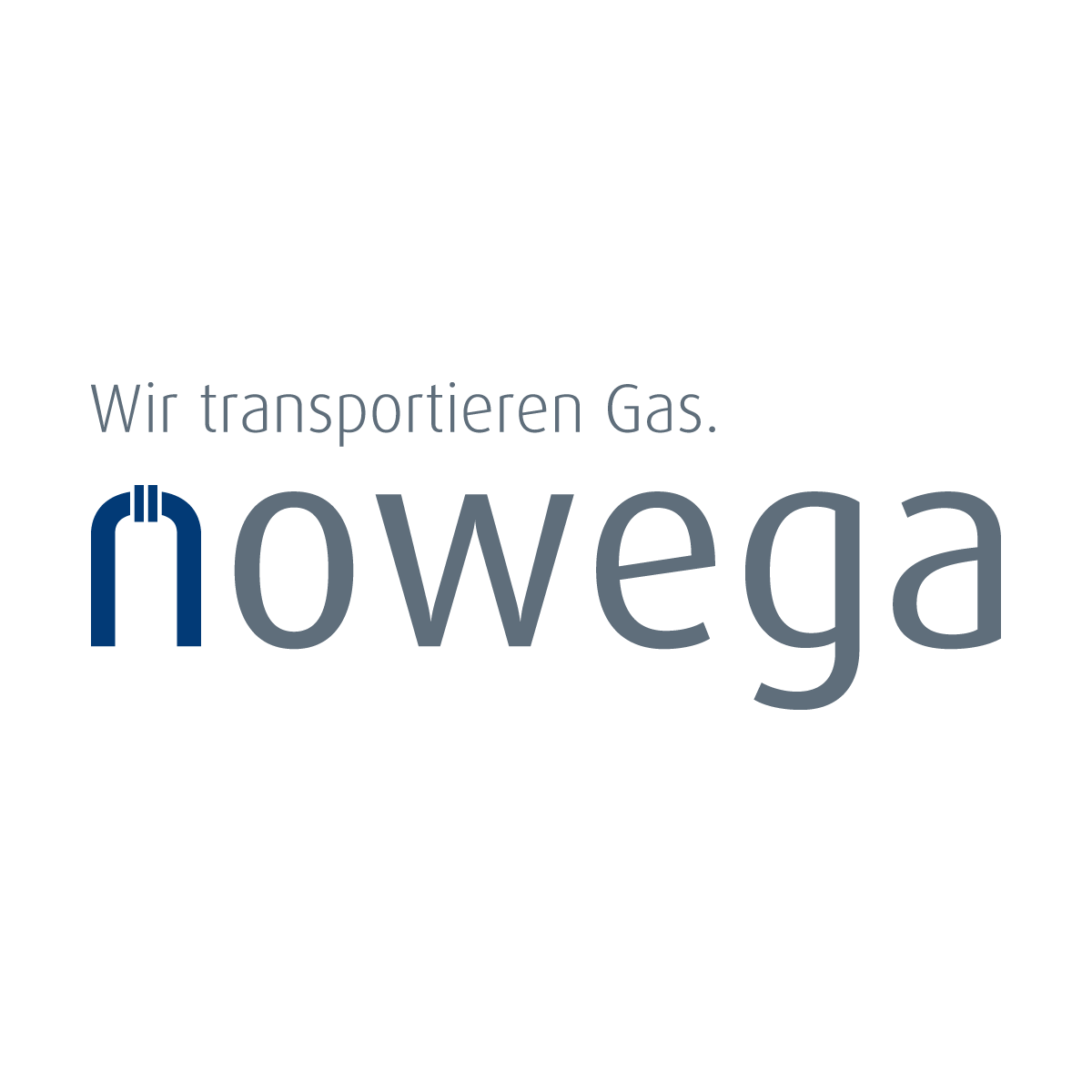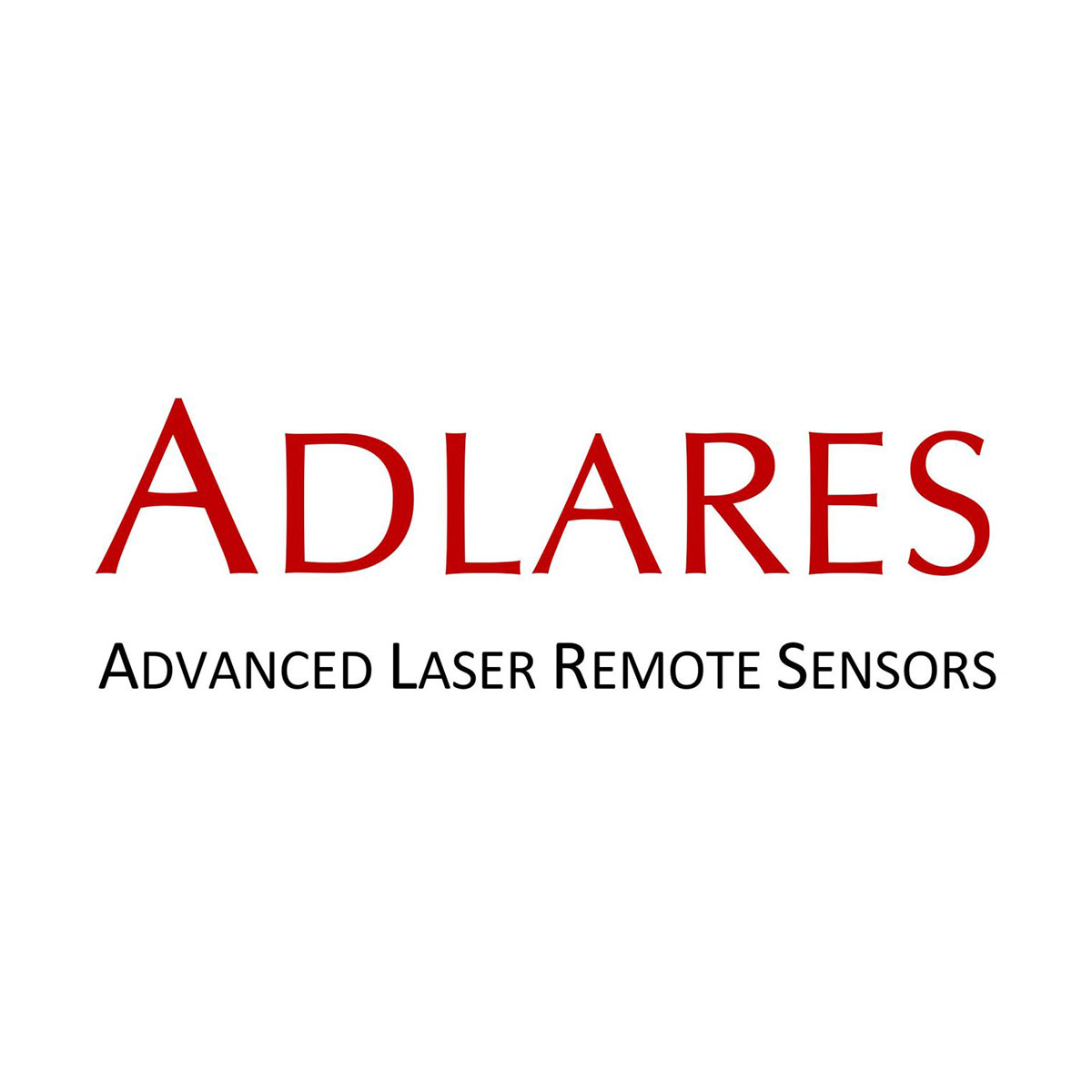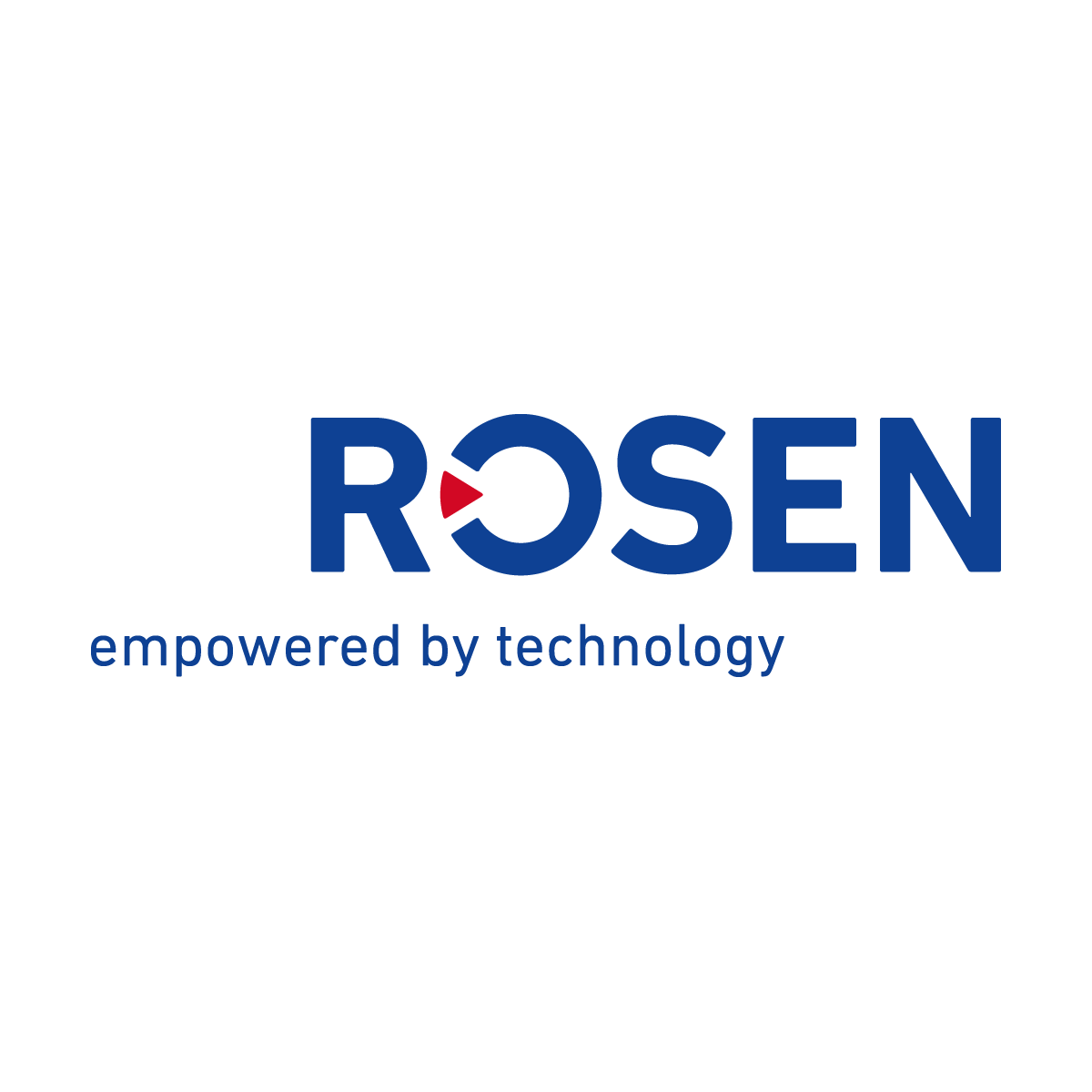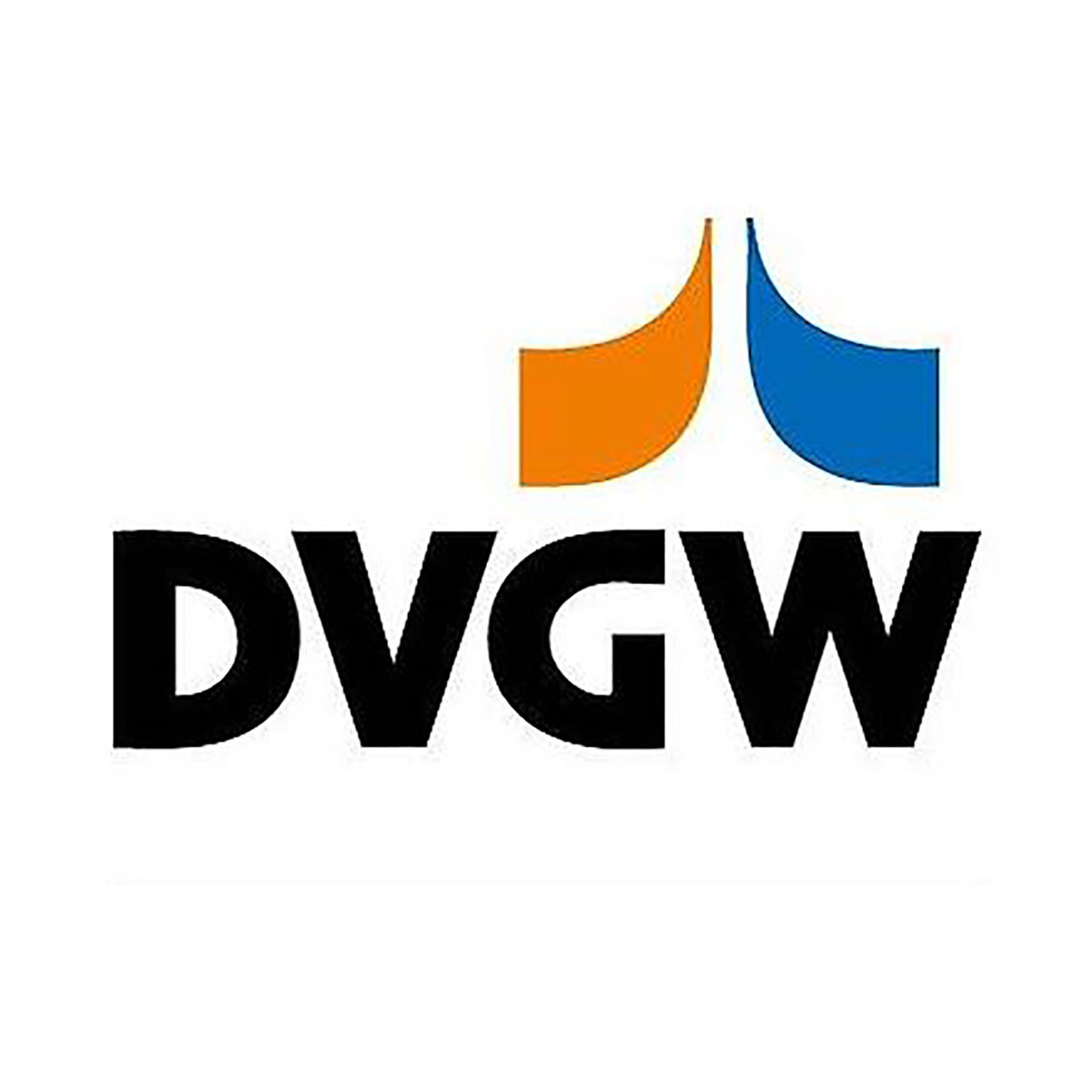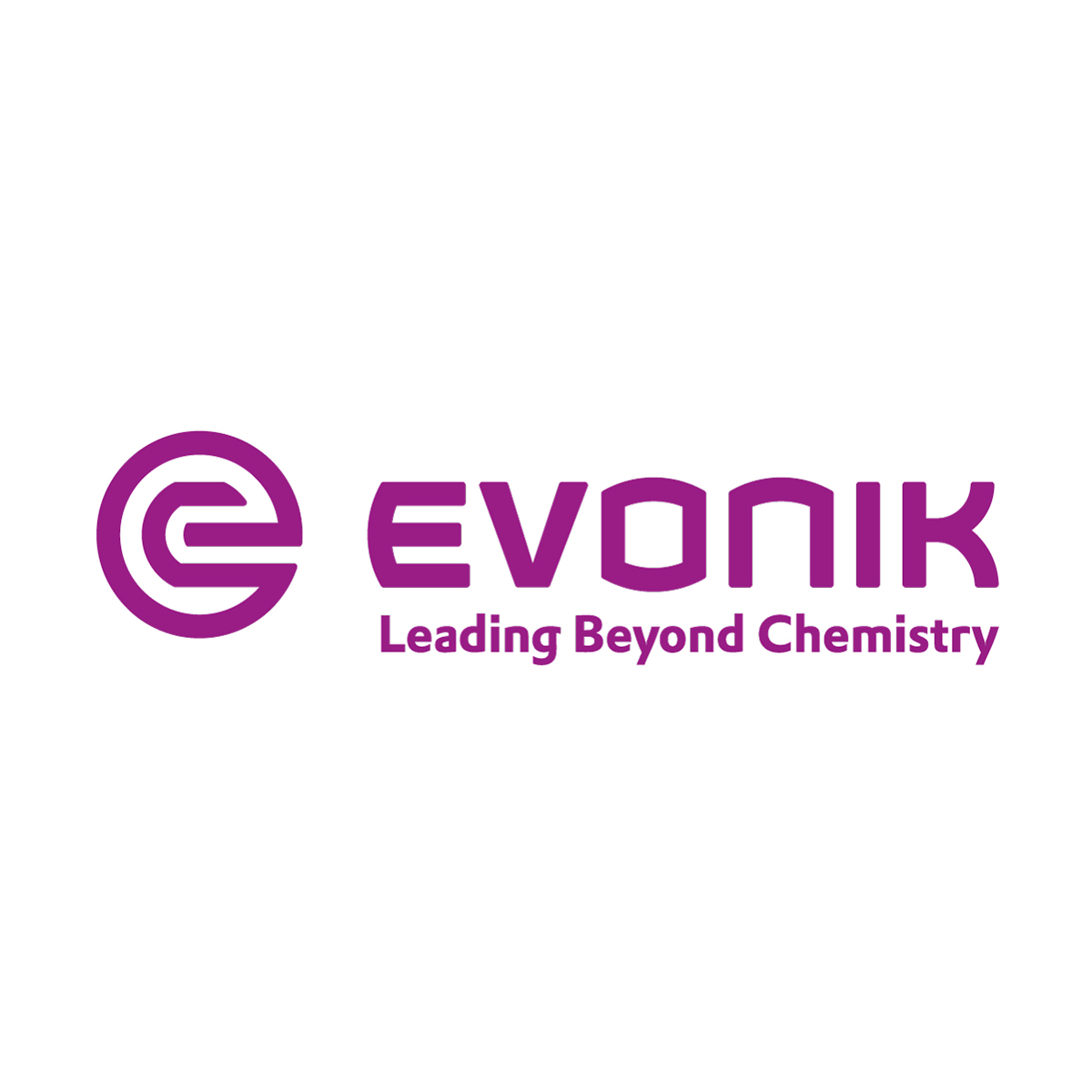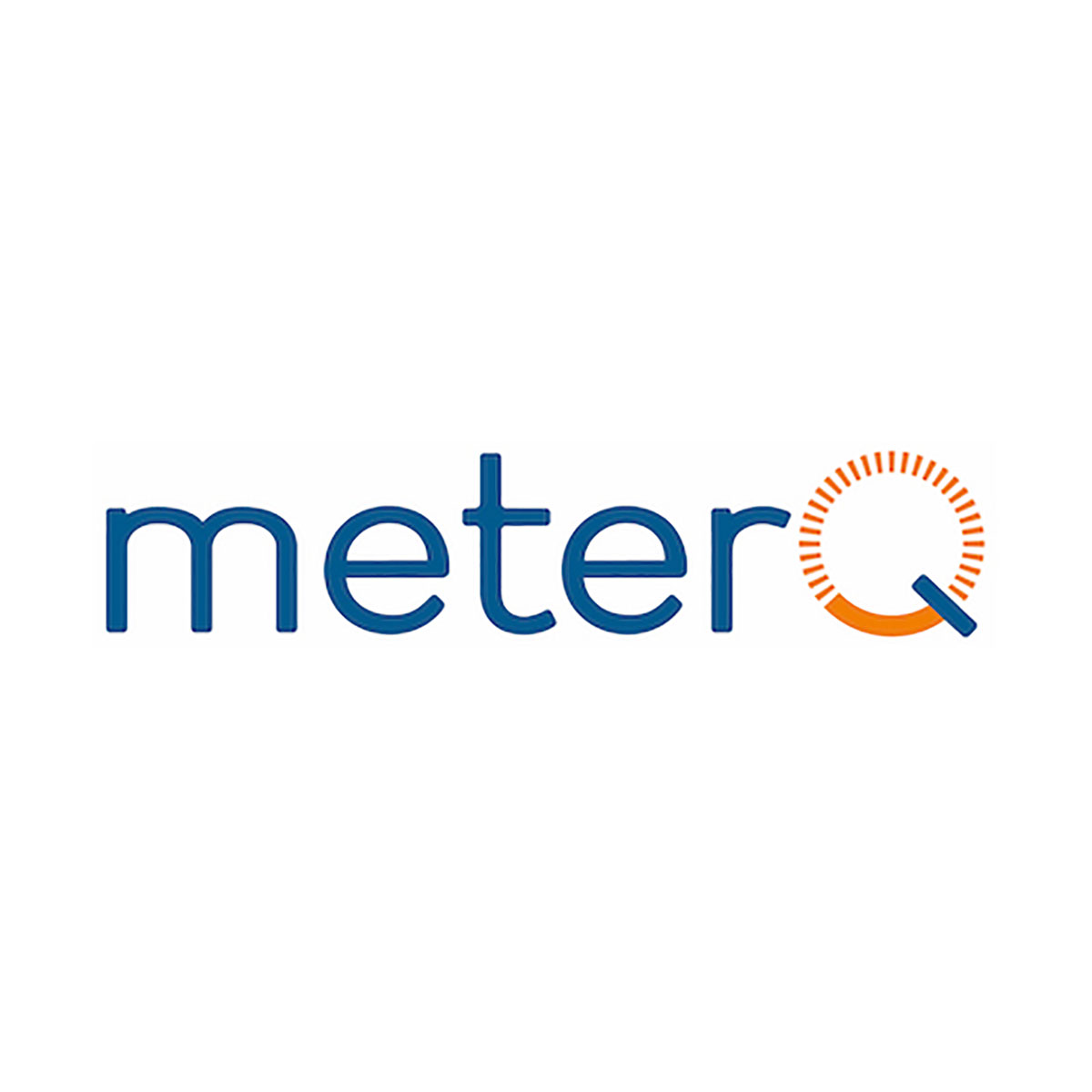TransHyDE project GET H2
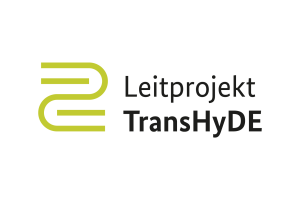 What will the infrastructure for hydrogen transportation in Germany look like? That is what the nine partners Adlares, Evonik, DVGW Research Center at Engler-Bunte-Institut of Karlsruhe Institute of Technology, Meter-Q Solutions, Nowega, OGE, Rosen, RWE and University of Potsdam are looking into as part of the GET H2 TransHyDE project. Their research leads to important findings about transportation and storage of hydrogen. In seven work packages, they are gathering important findings on the transport and storage of hydrogen. As one of the hydrogen flagship projects, it is being funded by the German Federal Ministry of Education and Research (BMBF) with 11.63 million euros.
What will the infrastructure for hydrogen transportation in Germany look like? That is what the nine partners Adlares, Evonik, DVGW Research Center at Engler-Bunte-Institut of Karlsruhe Institute of Technology, Meter-Q Solutions, Nowega, OGE, Rosen, RWE and University of Potsdam are looking into as part of the GET H2 TransHyDE project. Their research leads to important findings about transportation and storage of hydrogen. In seven work packages, they are gathering important findings on the transport and storage of hydrogen. As one of the hydrogen flagship projects, it is being funded by the German Federal Ministry of Education and Research (BMBF) with 11.63 million euros.
Core objectives of TransHyDE
As a practice-oriented approach, the TransHyDE-project GET H2 represents an important part of collaborative research into future long-distance pipelines for hydrogen. At the center of the research is a demonstration field including a test pipeline in Lingen in the Emsland region on the site of the RWE gas-fired power plant. By 2025, the metrological foundations for future long-distance hydrogen pipelines will have been laid here.
The project’s central tasks are:
- Setup and operation of a test environment
- Quality and quantity measurement
- Investigation of the H2-compatibility of materials
- Airborne hydrogen remote detection
- Intelligent pigging of pipelines
- Optimization of compressor concepts for feed and transport
- Consolidation and communication of results
The joint research offers all partners involved the chance to analyze important aspects of hydrogen transport under real conditions and demonstrates the strength of joint efforts to implement important practical projects. Independently of the TransHyDE project, one of the first publicly accessible hydrogen pipelines is scheduled to start from Lingen in 2024, transporting green hydrogen to the bp refinery in Gelsenkirchen as part of the GET H2 Nukleus project.
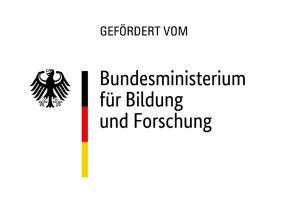
Further information from the TransHyDE project
 The hydrogen flagship projects constitute the largest research initiative of the Federal Ministry of Education and Research (BMBF) to date on the topic of energy transition. In the industry-led flagship projects, industry and science are jointly developing solutions for the German hydrogen economy: series production of large-scale electrolysers (H2Giga), production of hydrogen at sea (H2Mare), technologies for the transport of hydrogen (TransHyDE).
The hydrogen flagship projects constitute the largest research initiative of the Federal Ministry of Education and Research (BMBF) to date on the topic of energy transition. In the industry-led flagship projects, industry and science are jointly developing solutions for the German hydrogen economy: series production of large-scale electrolysers (H2Giga), production of hydrogen at sea (H2Mare), technologies for the transport of hydrogen (TransHyDE).
The BMBF-funded hydrogen lead projects are the result of a competition: science, industry and civil society were invited to submit ideas for large-scale hydrogen projects. More than 240 partners have come together in this way and are to receive a total of up to 740 million euros in funding. The lead projects will be funded over a period of four years.
Further Information: www.wasserstoff-leitprojekte.de
Support Partners
Project coordination
Dr. Frank Graf
Division Manager Gas Technology
DVGW-EBI
graf@dvgw-ebi.de
Sonja Rothenbacher
Head of Organization and Communication
DVGW-EBI
rothenbacher@dvgw-ebi.de
The project partners listed above are responsible for the content.
